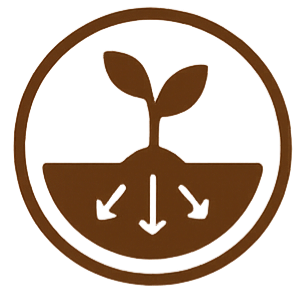Maslin flour

MONARCH BUTTERFLY - Maslin Mix
Why This Mascot: Monarchs depend on diverse prairie plantings across Minnesota, where our polyculture Maslin grains grow together naturally - creating the habitat corridors these migrants need.
Fun Facts:
- Travels up to 3,000 miles during migration - one of nature's greatest journeys.
- Fourth generation monarchs live 8x longer than their parents to make the full migration.
- Uses magnetic fields and sun position to navigate with incredible precision.
- Monarch caterpillars feed exclusively on milkweed, which makes them toxic to predators.
- Overwintering monarch colonies in Mexico can have millions of butterflies clustering on trees.

Biodiversity & Ecosystems
Crop Type: Maslin - a mix of oats, wheat, and barley all grown in the same field, at the same time.
Insects: Ground Beetle, Spiders, Harvestmen, Mites
Birds (Visual & Audio): Ring-necked Pheasant, Mourning Dove, additional unidentified bird calls submitted for review.
Observations: This mixed-grain system increases biodiversity compared to a single-crop field, creating a more complex habitat structure for wildlife. The presence of predatory insects like ground beetles and spiders points to a healthy foundation for natural pest control. The grain mix provides varied foraging opportunities, and the denser canopy offers better cover for birds like the Ring-necked Pheasant.

Soil Health & Emissions
Our Regenerative Organic Maslin is a testament to the power of farming in harmony with nature. By growing oats, wheat, and rye together—a traditional practice known as maslin—our farm partners create a resilient, biodiverse ecosystem.
This holistic approach delivers significant, measurable impact. On our partner farm in Minnesota, these practices, which combine diverse crop rotations with integrated grazing, have resulted in a measured increase in carbon per acre added back into the soil annually, boosting its fertility and ability to hold water for future harvests.
We believe in full transparency about our entire footprint. A cradle-to-gate Life Cycle Assessment (LCA) from our partners at Planet FWD shows the carbon footprint of this flour is 0.263 kg CO2e. This verifiable number is a crucial benchmark for us, demonstrating our commitment to honestly measuring our impact as we champion regenerative systems that enrich the land for generations.

Nutrient Density & Wellness
Healthier soil means healthier plants, which leads to more nutritious food.
Our Maslin flour is grown under the highest standards of regenerative, organic crop production by ROC Gold farmer, Luke Peterson.
